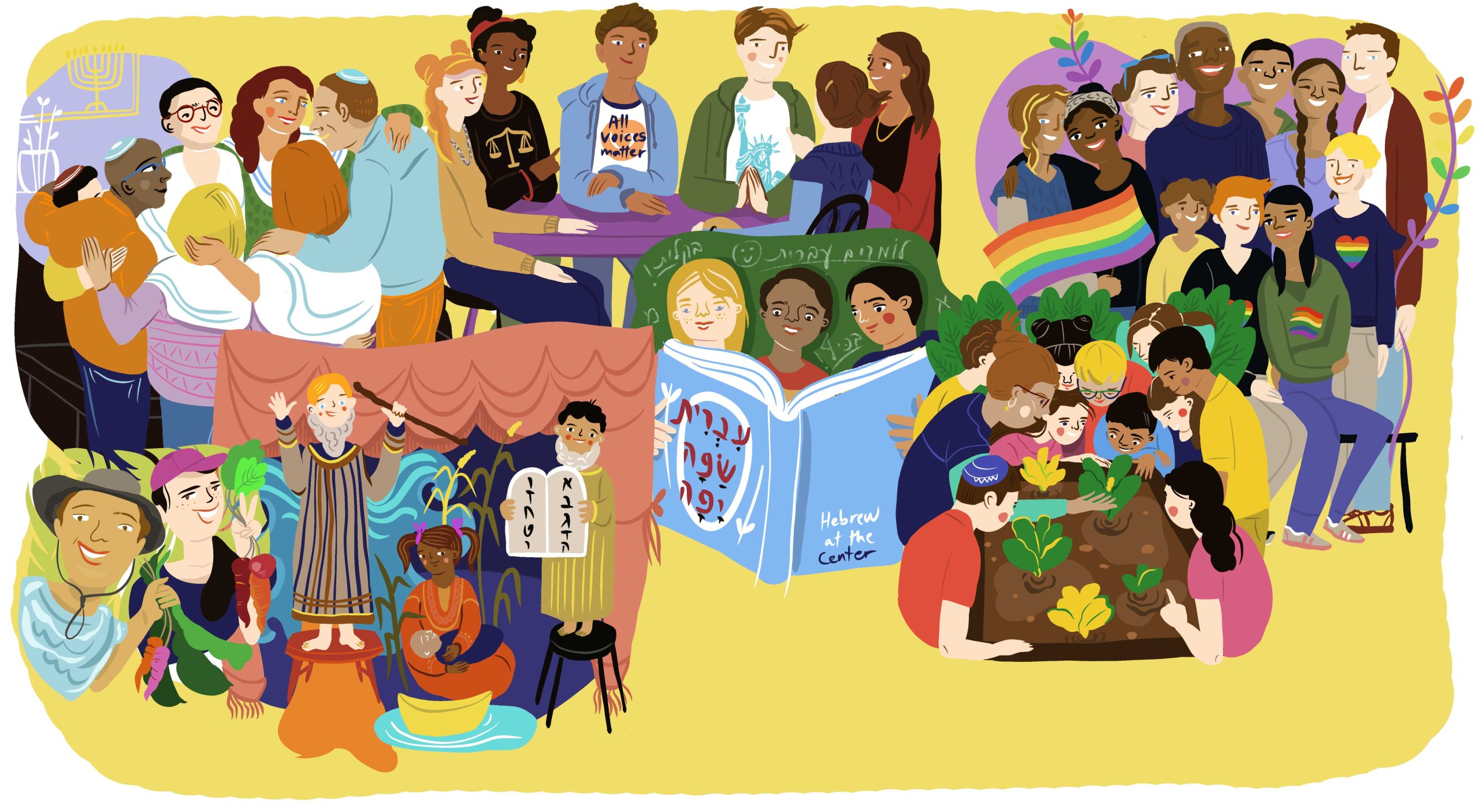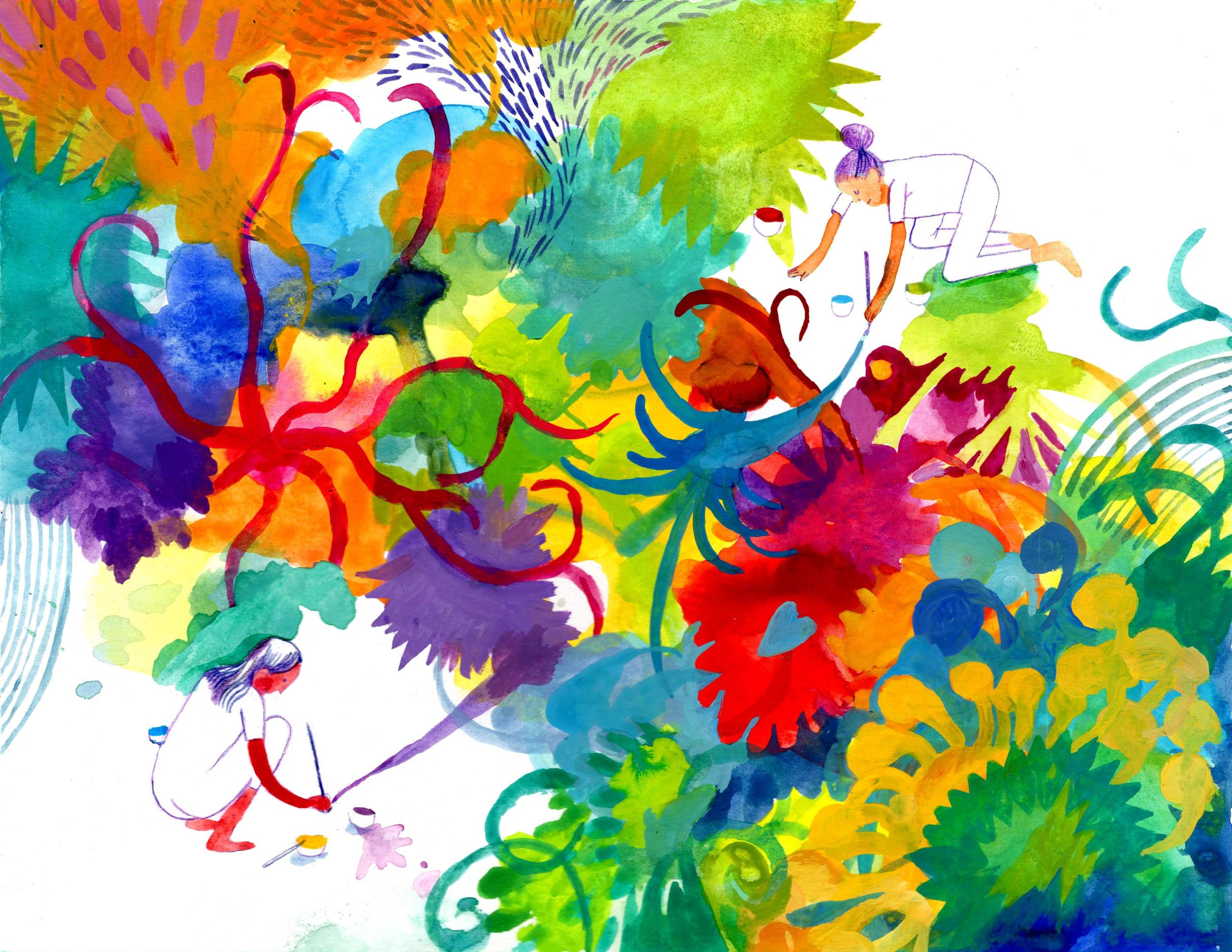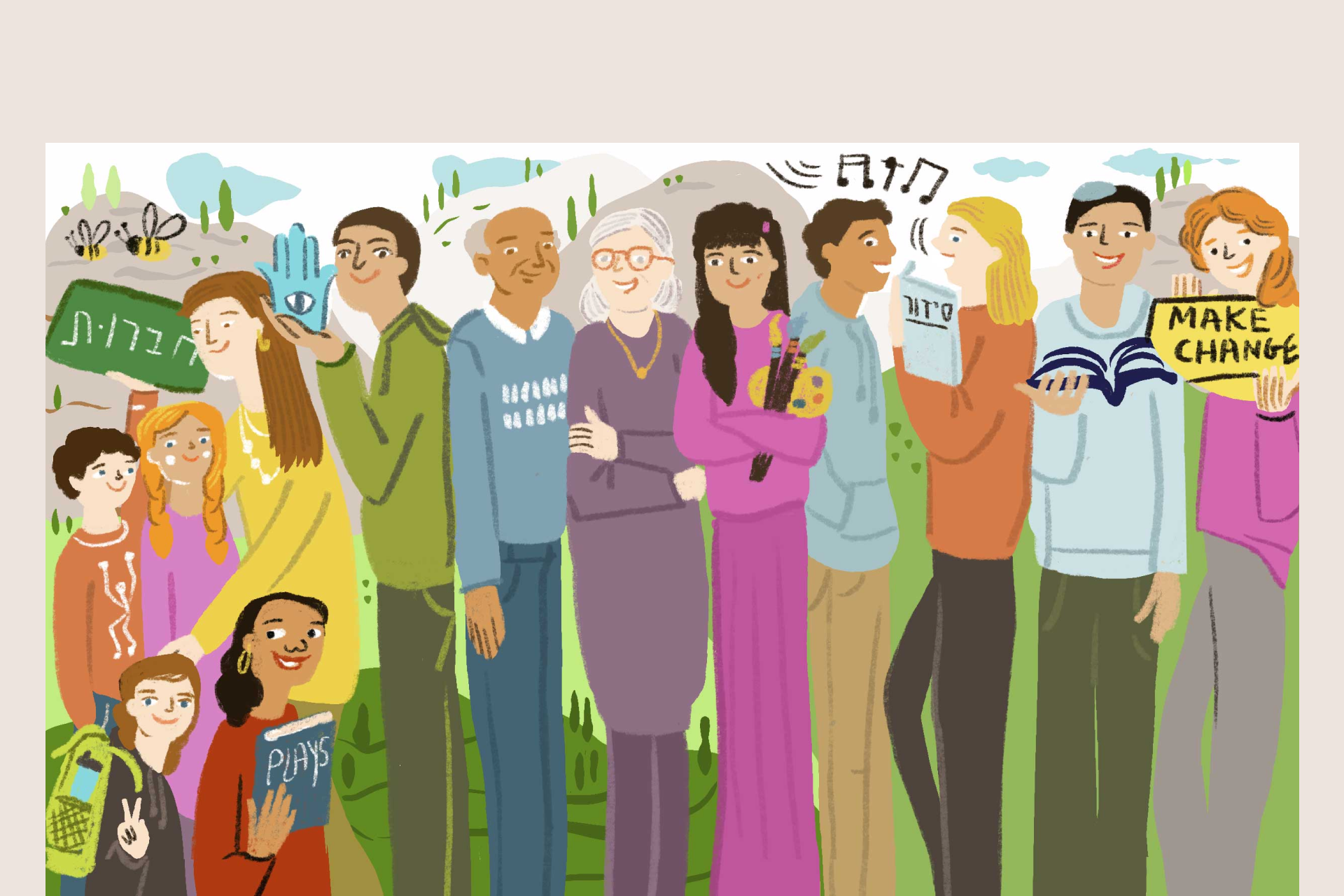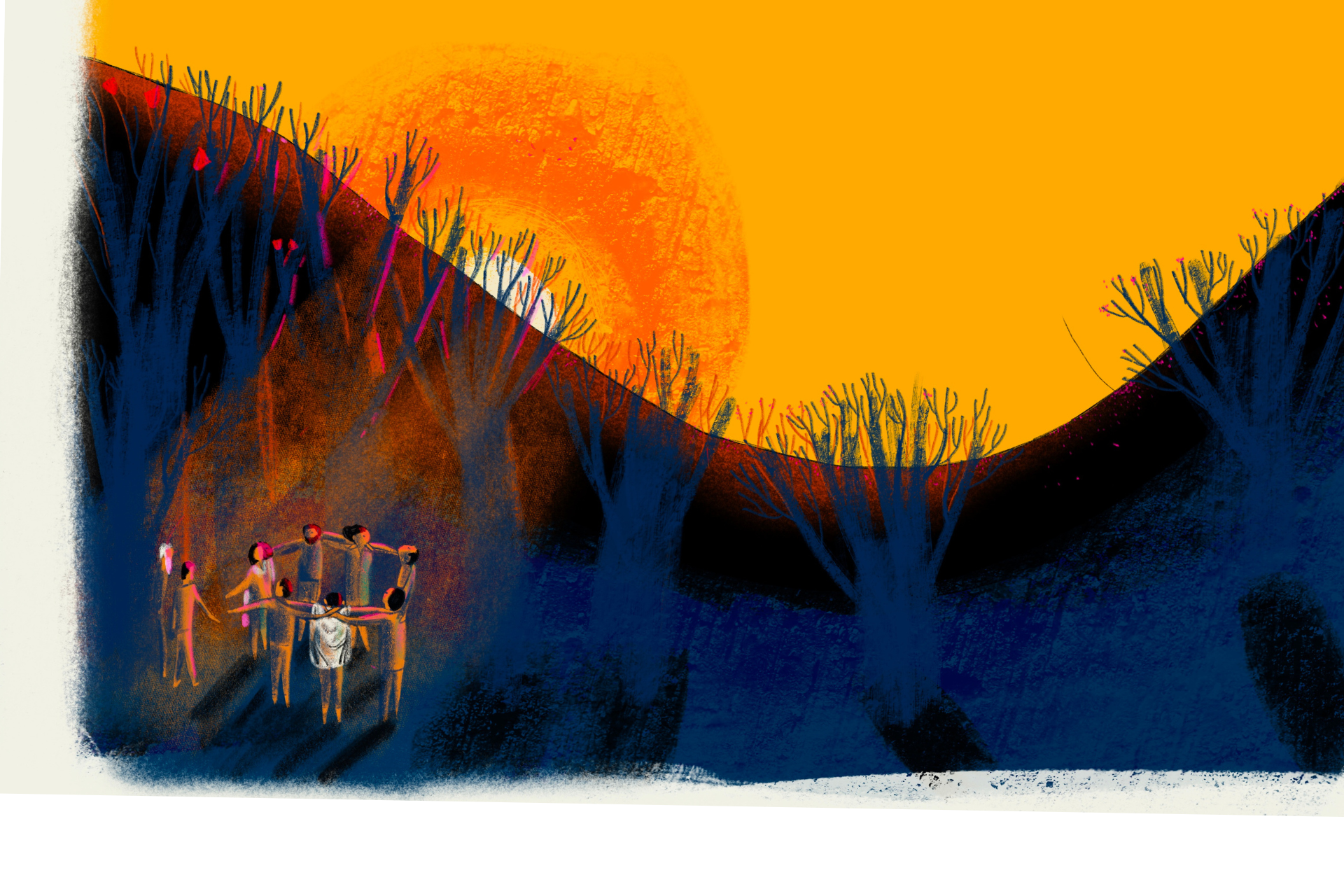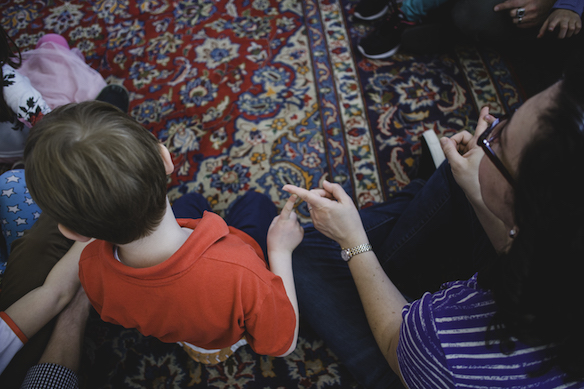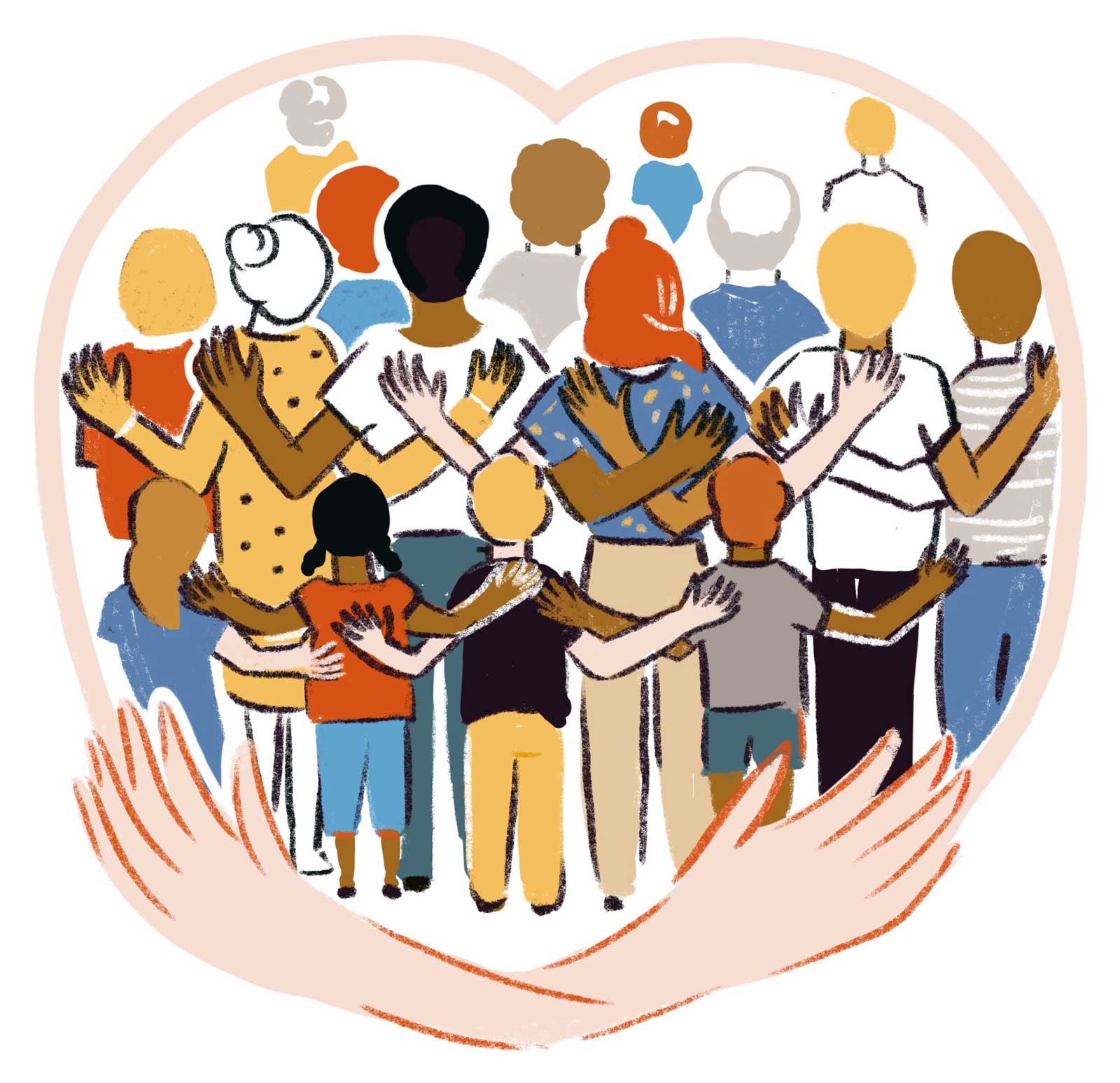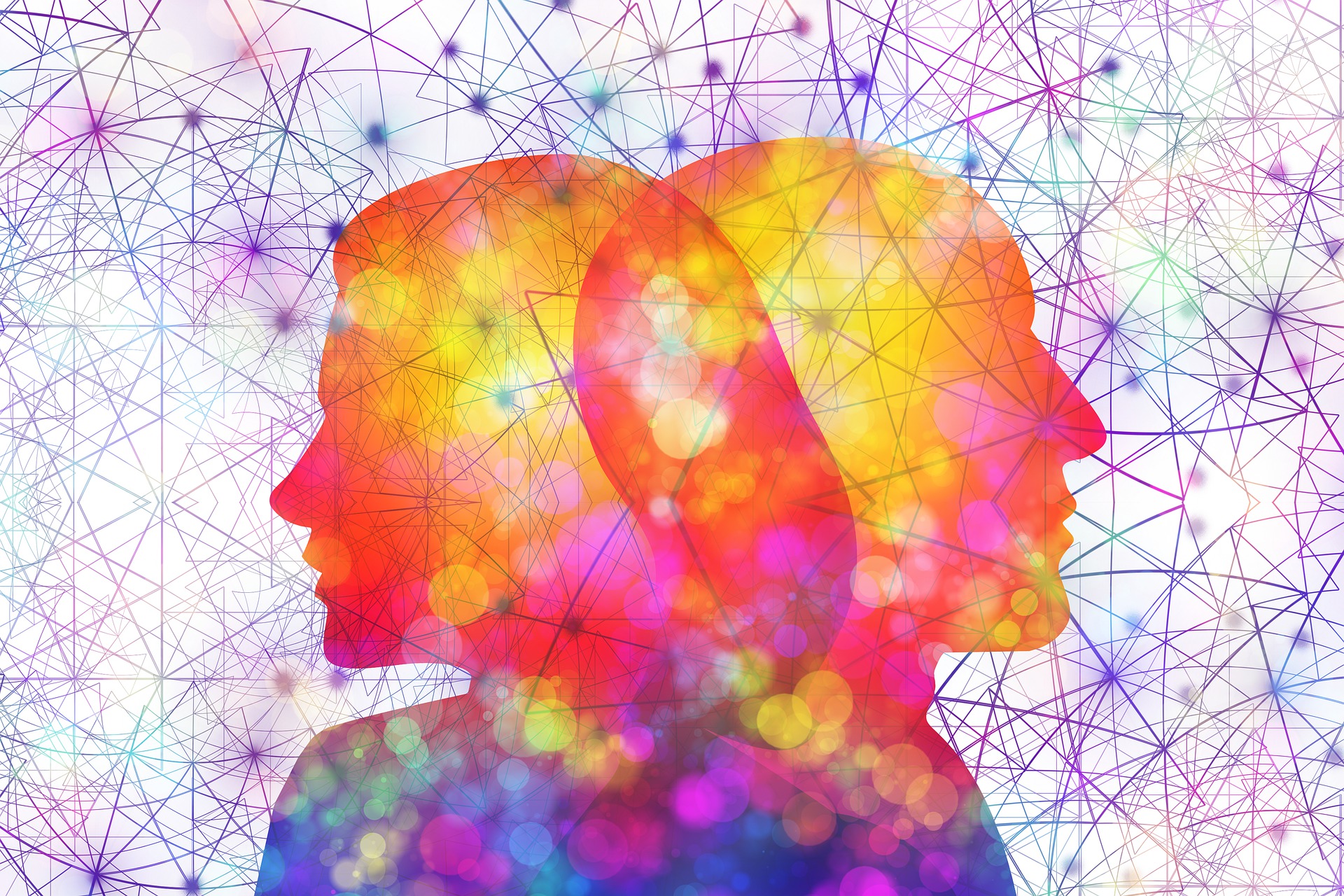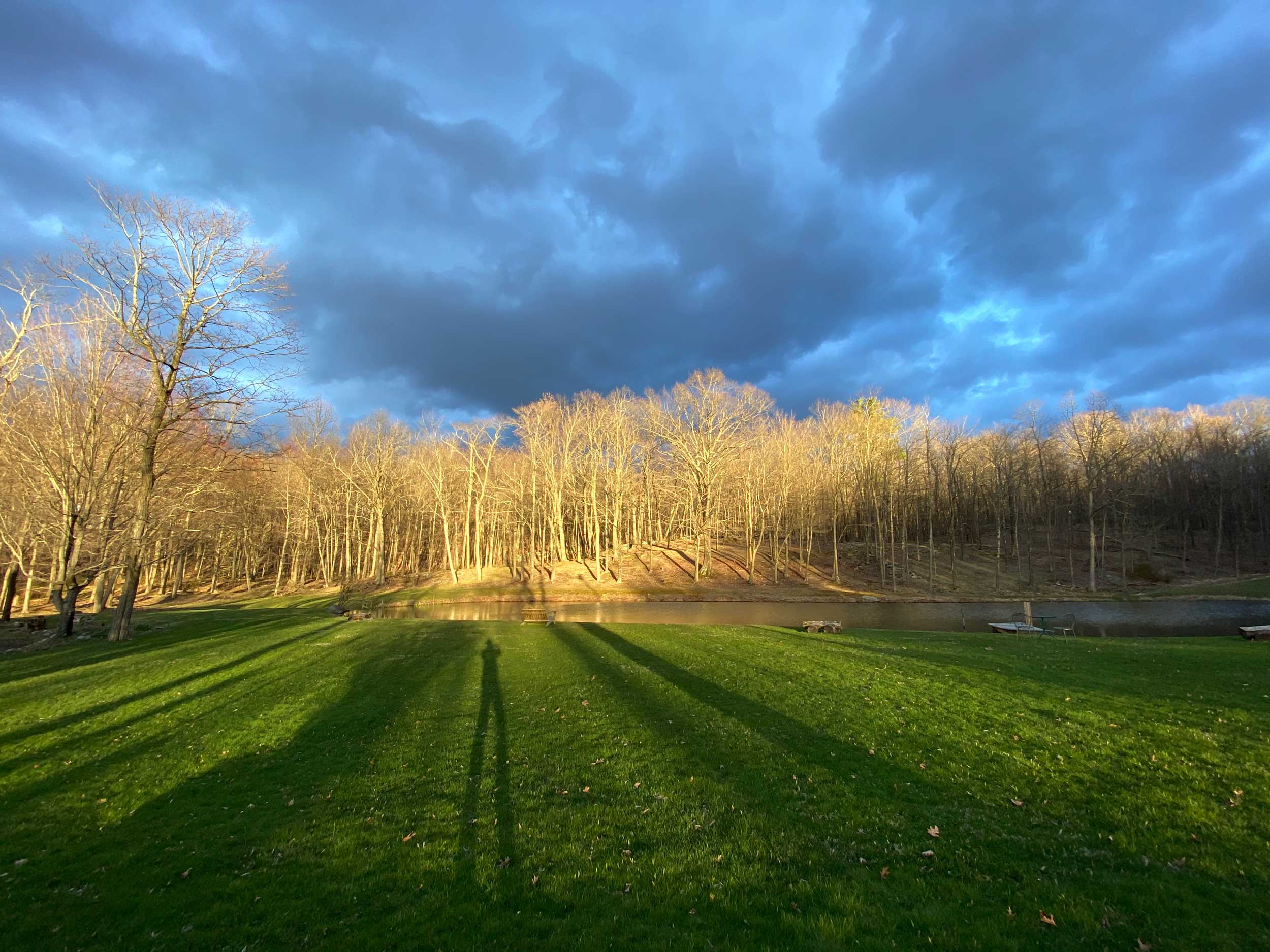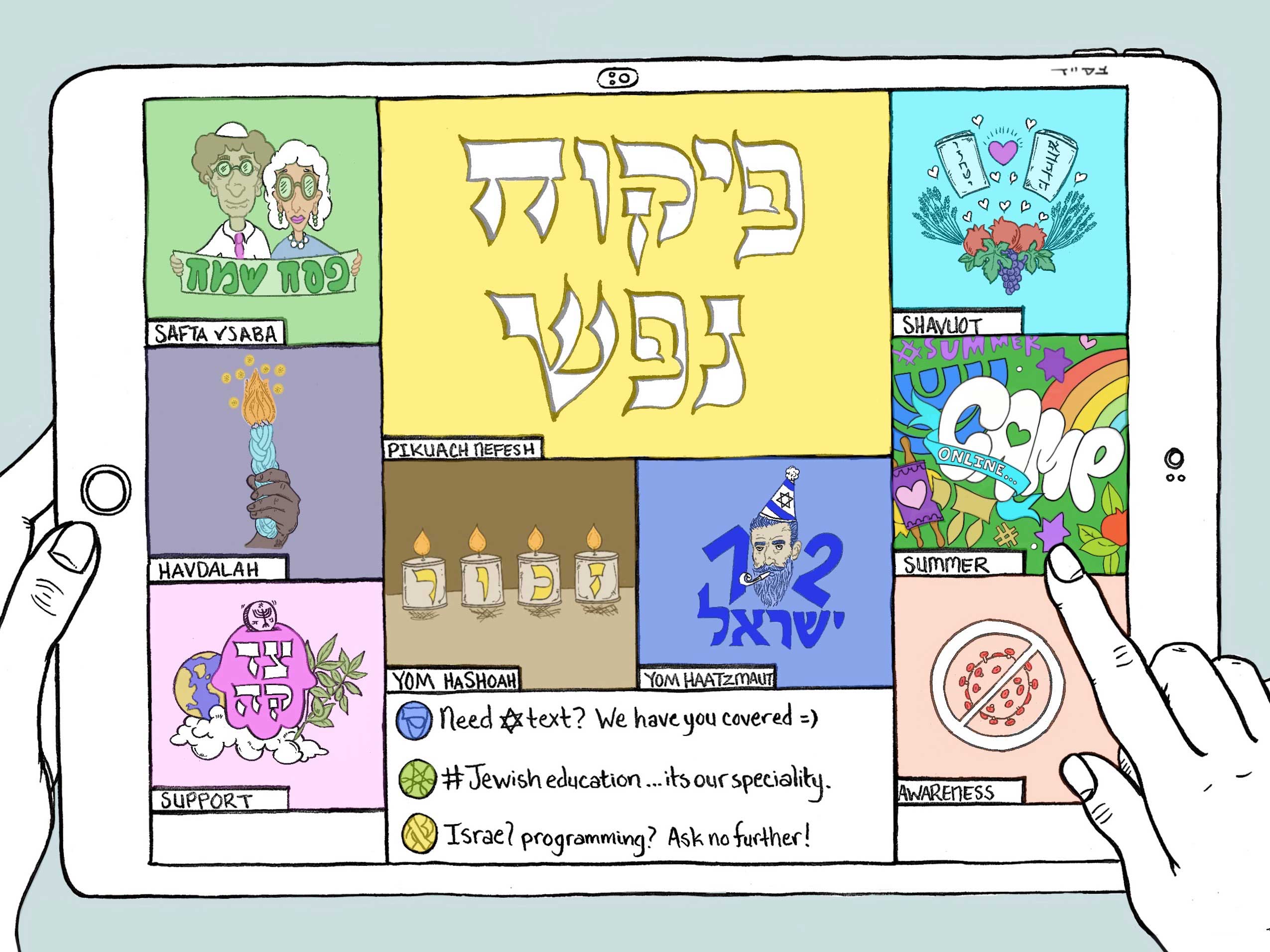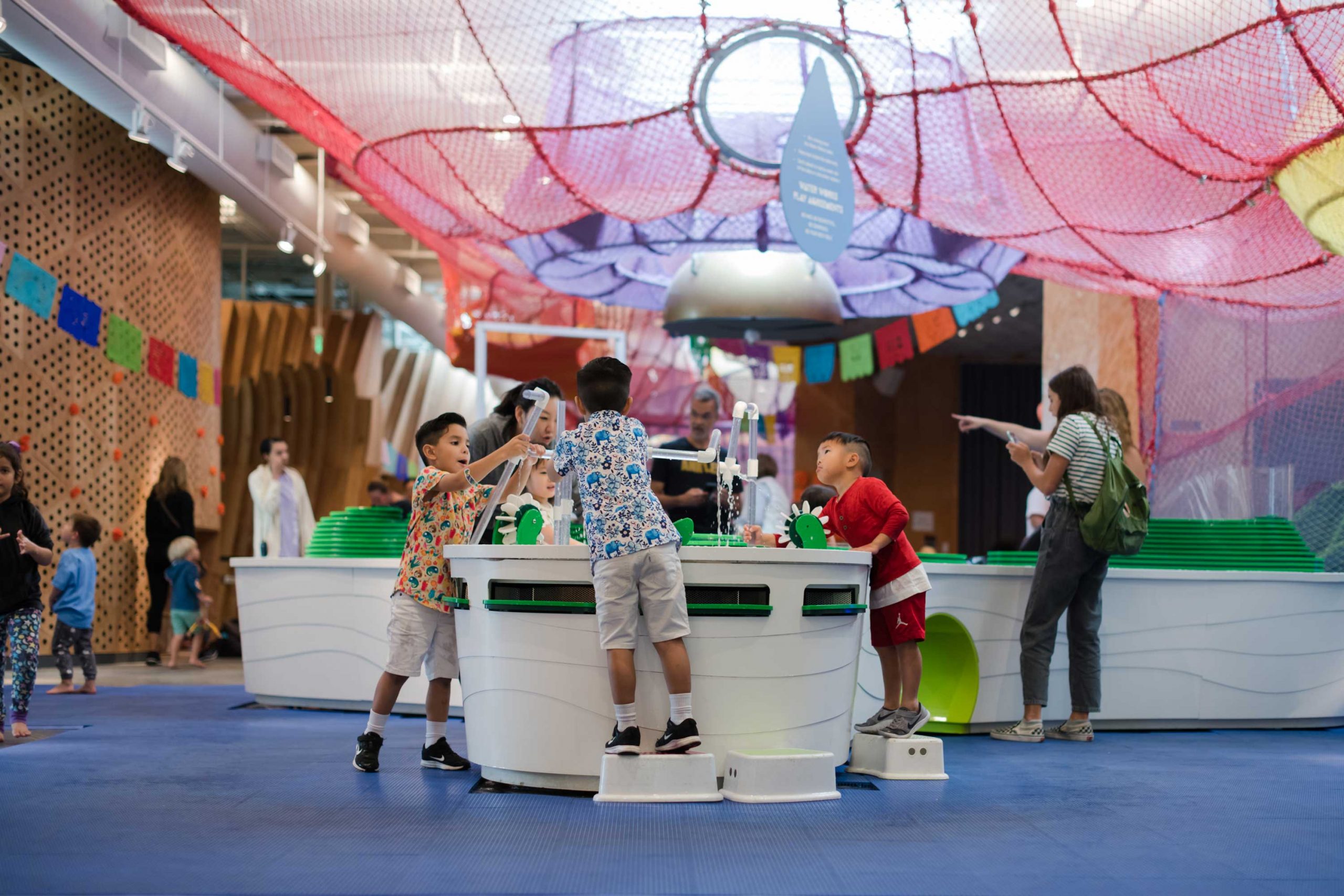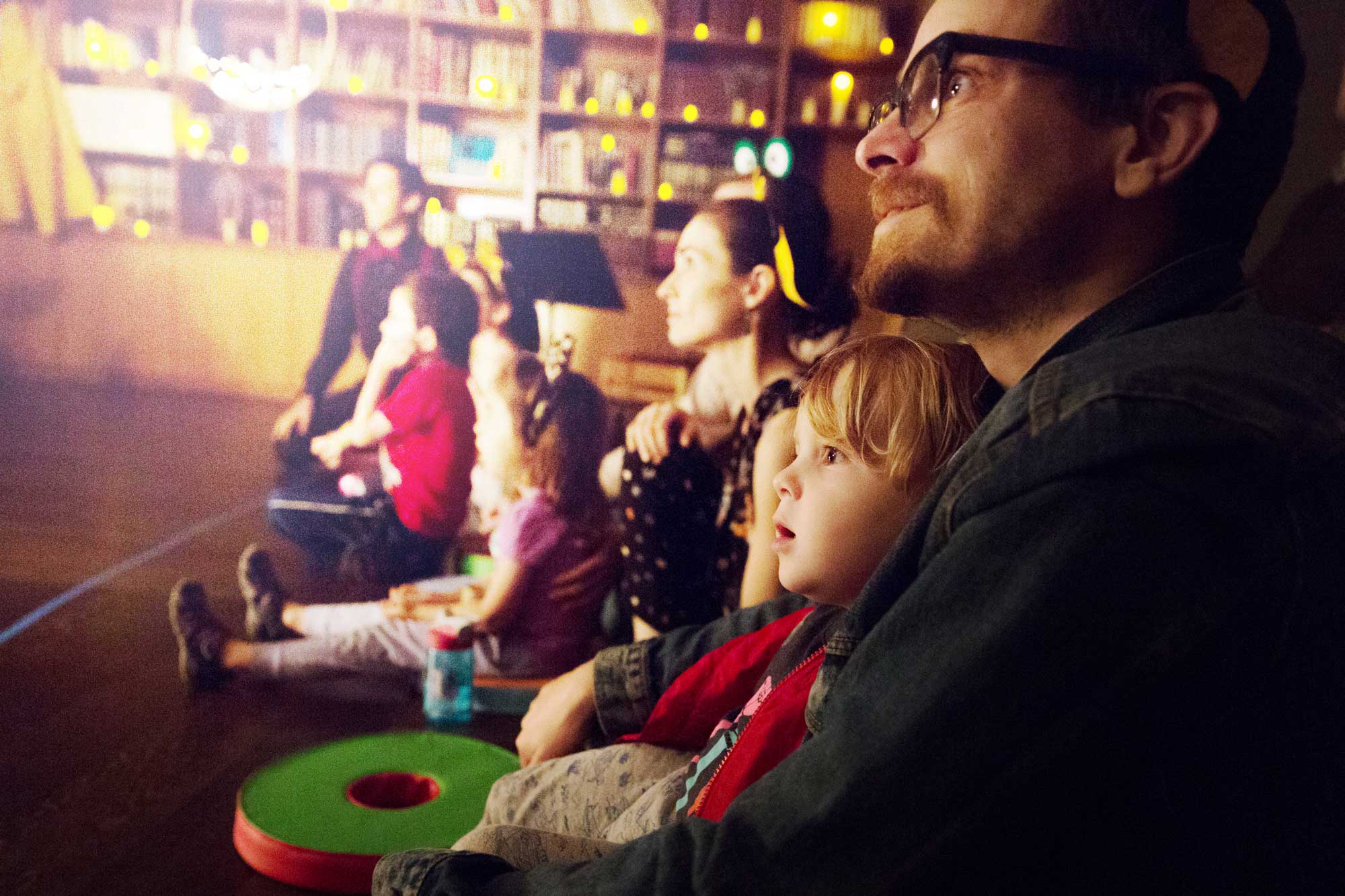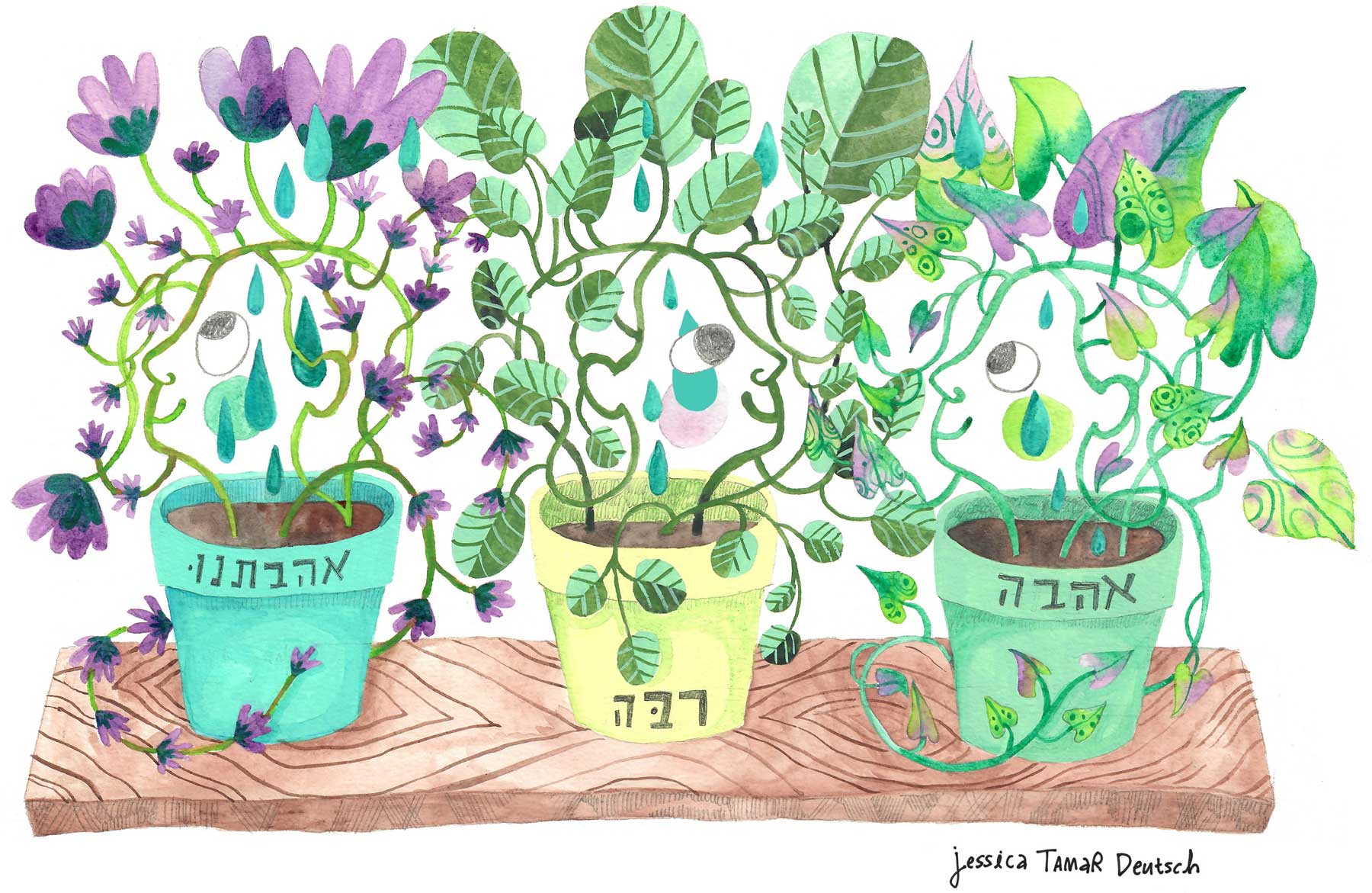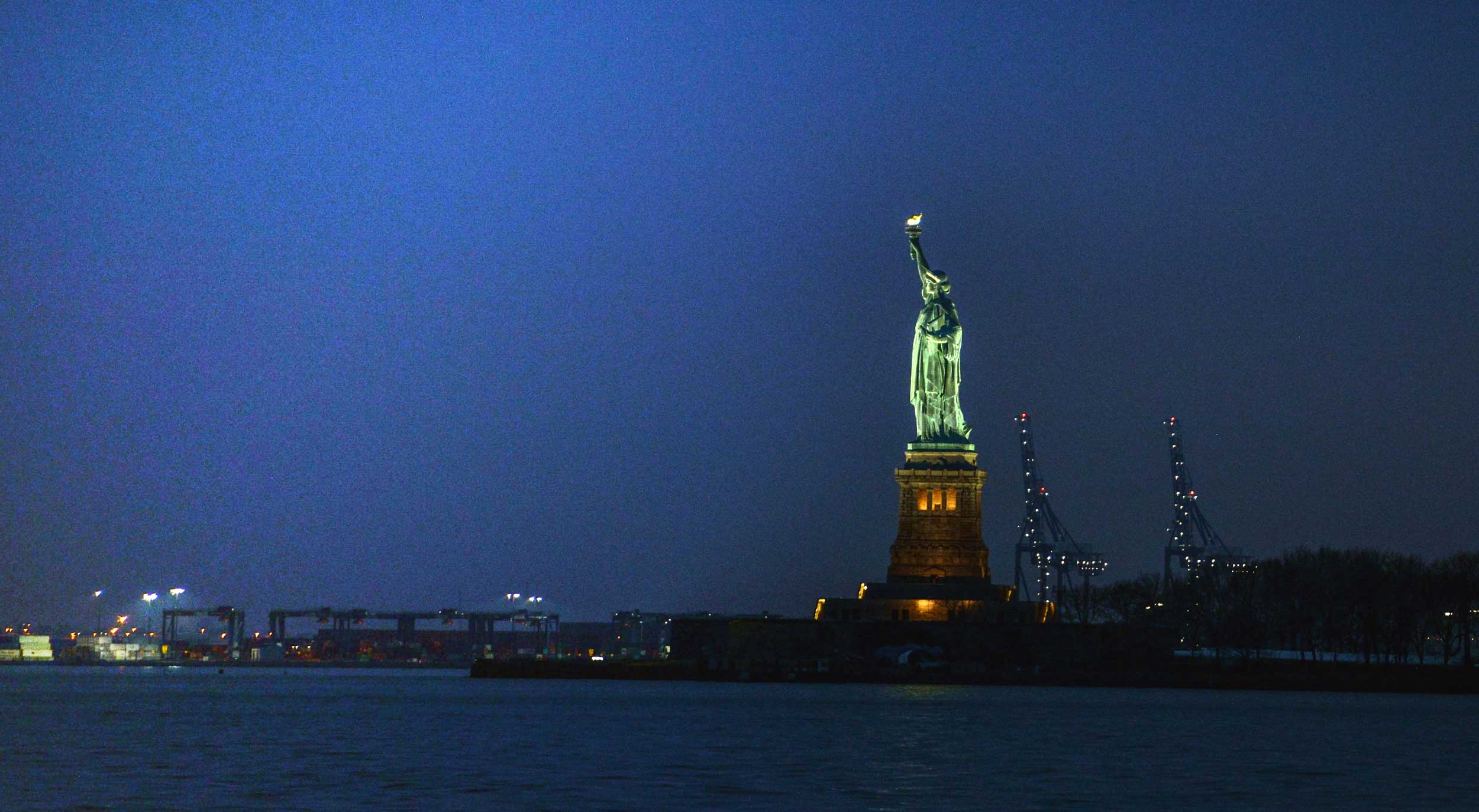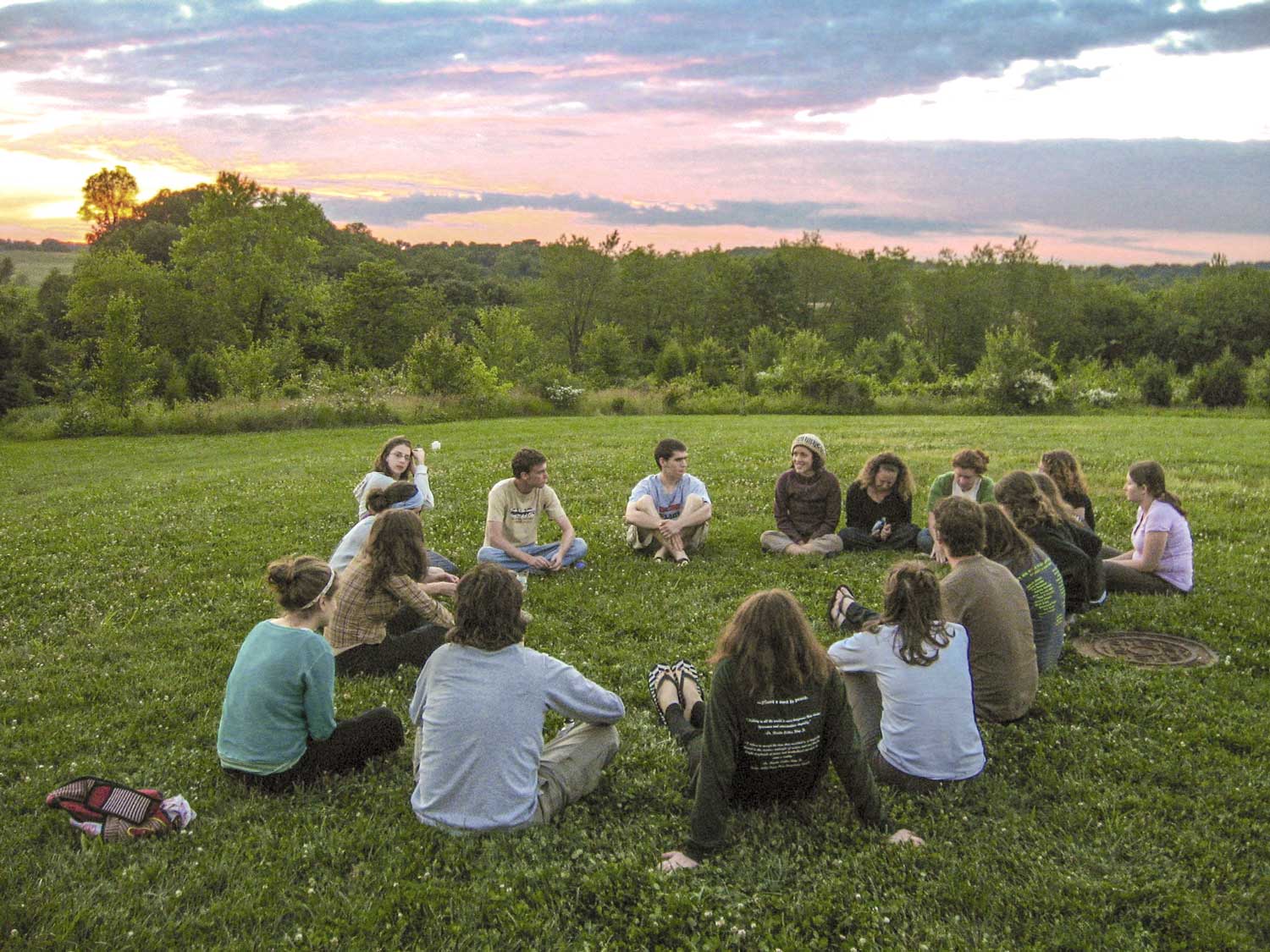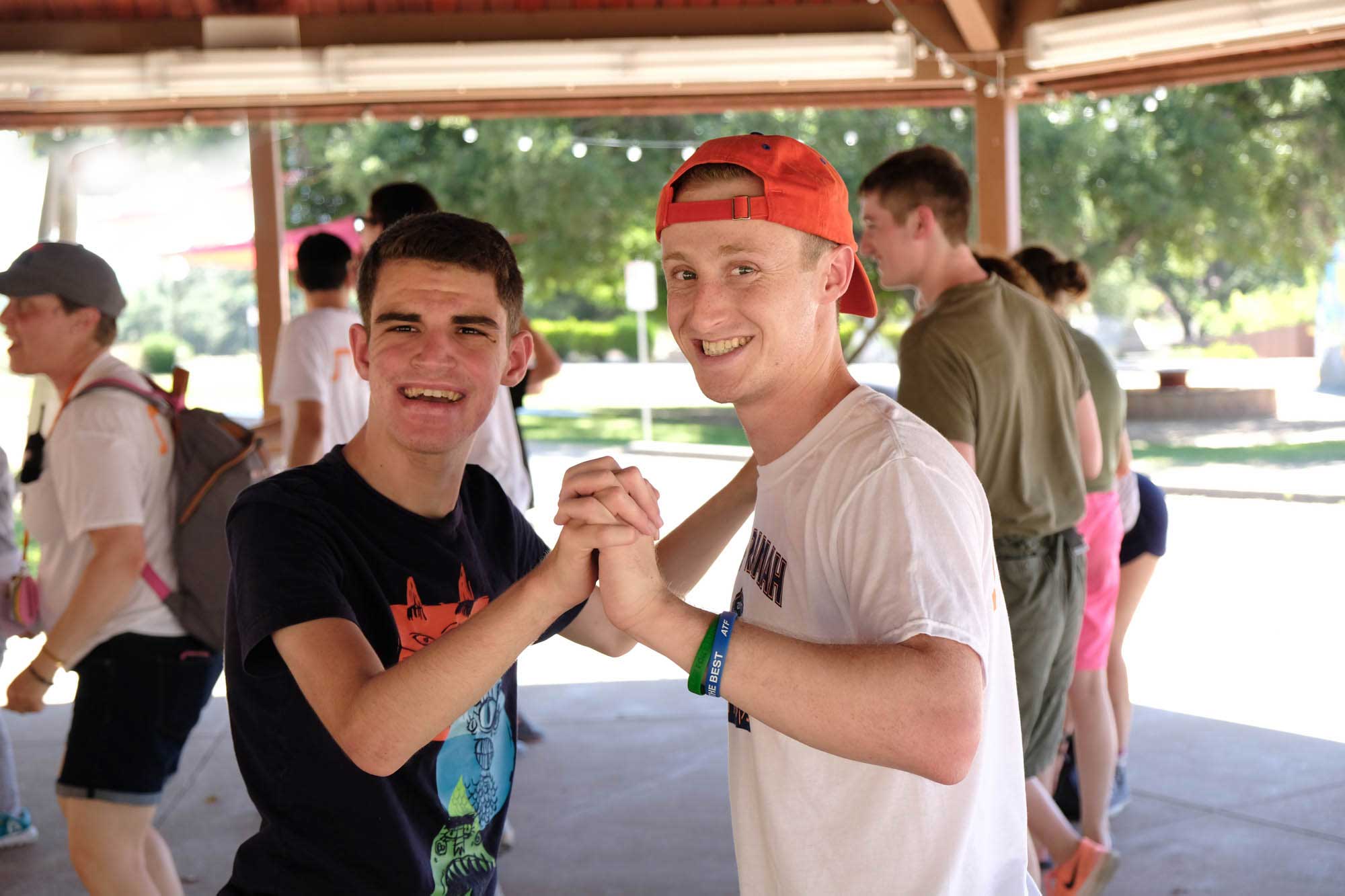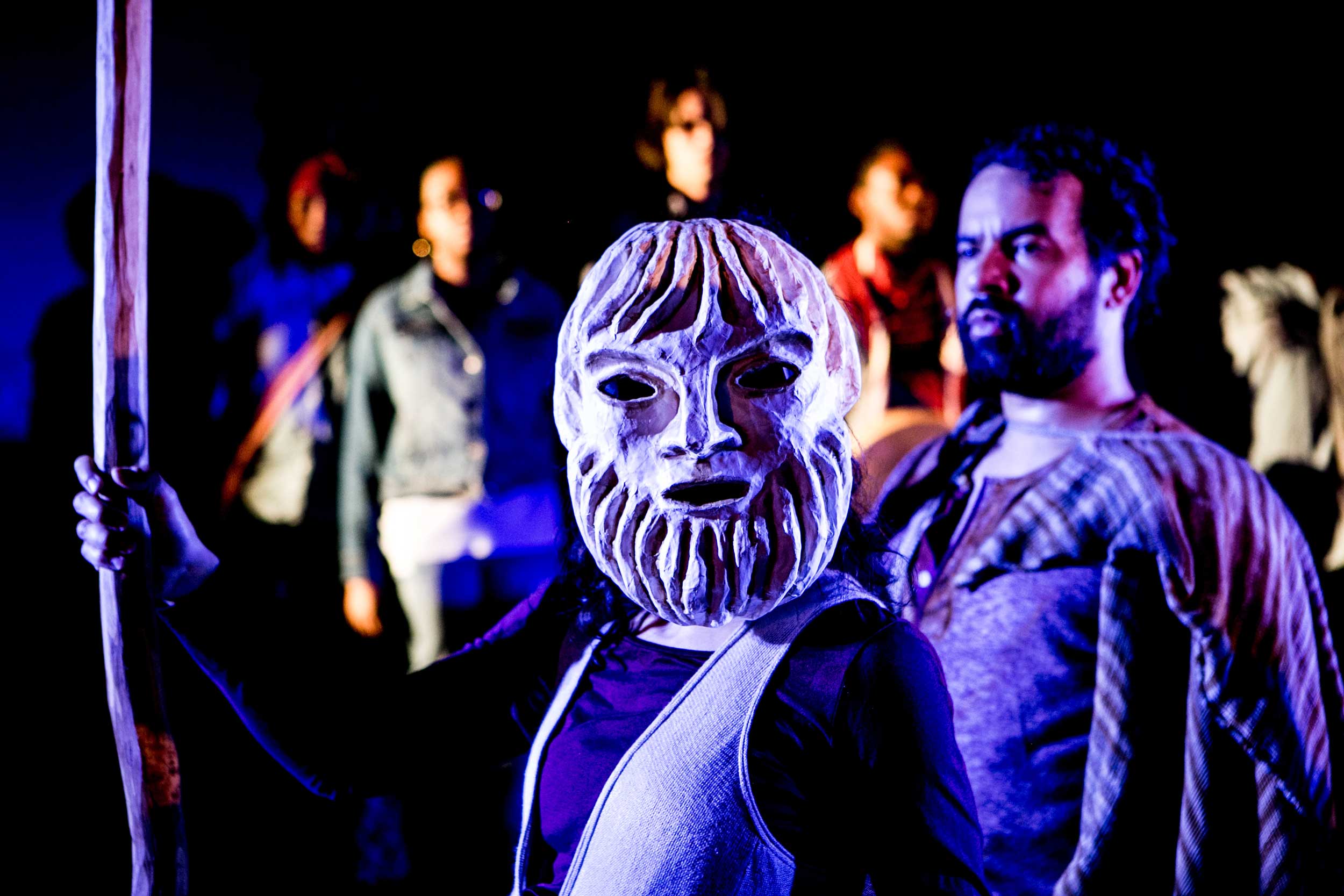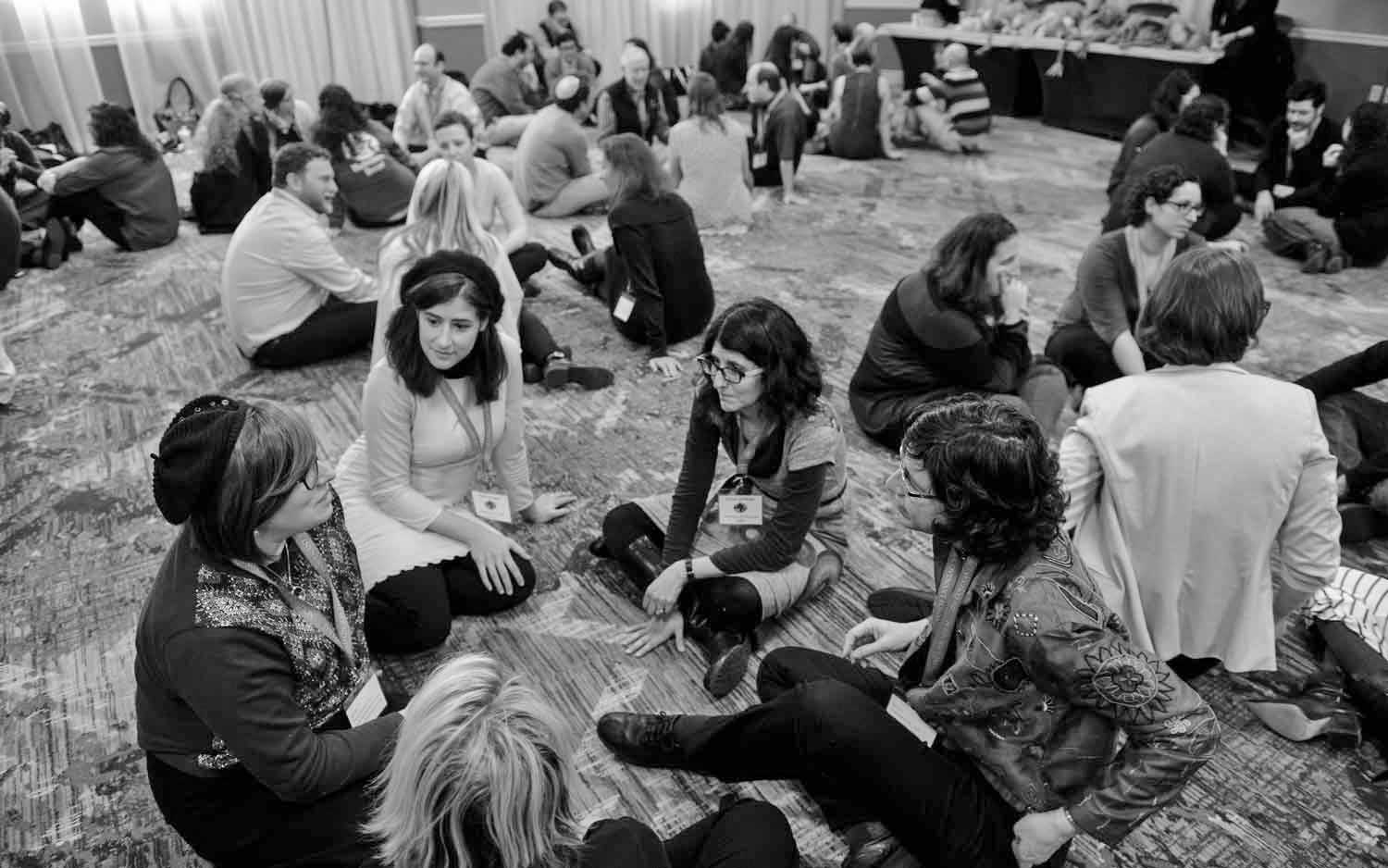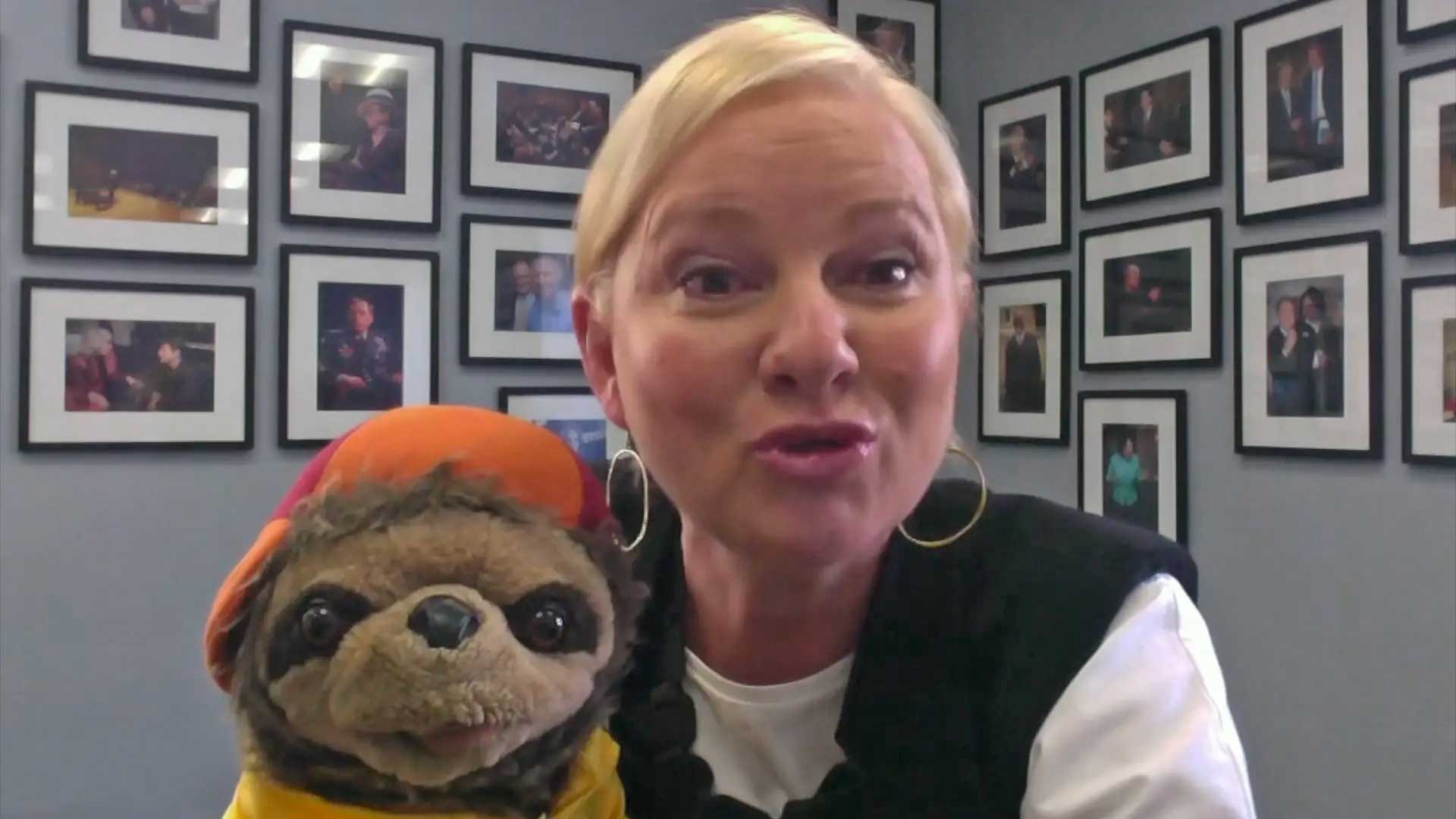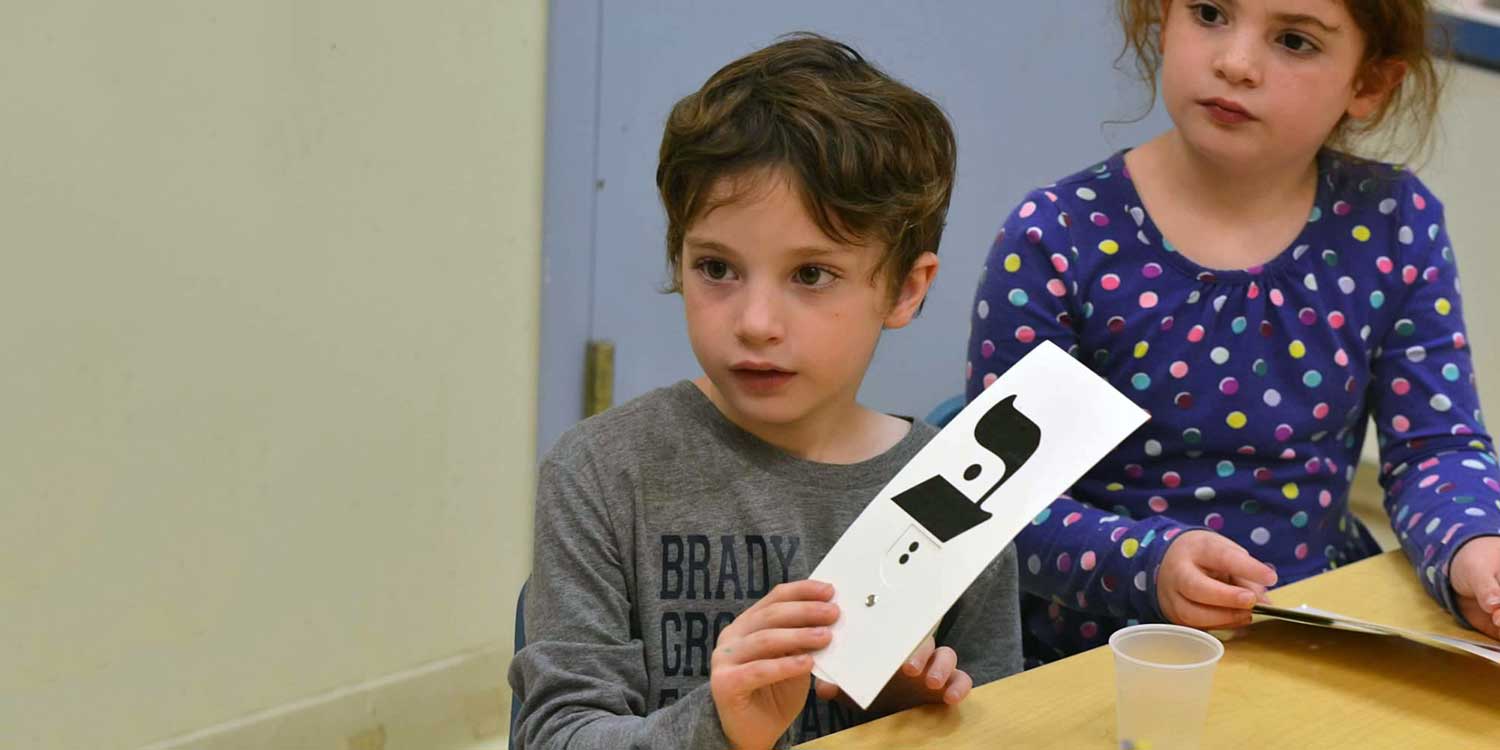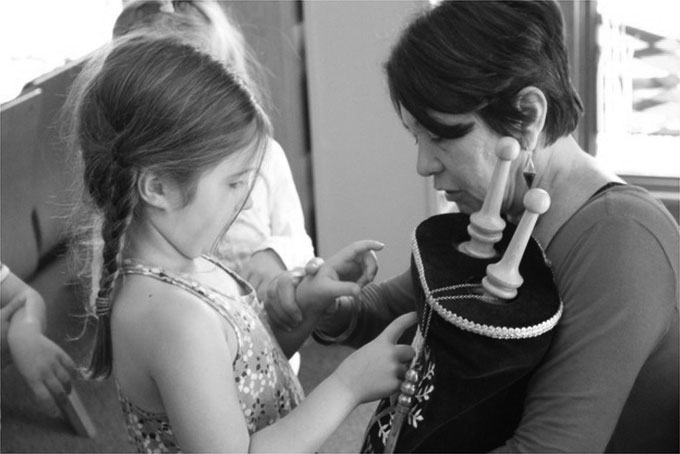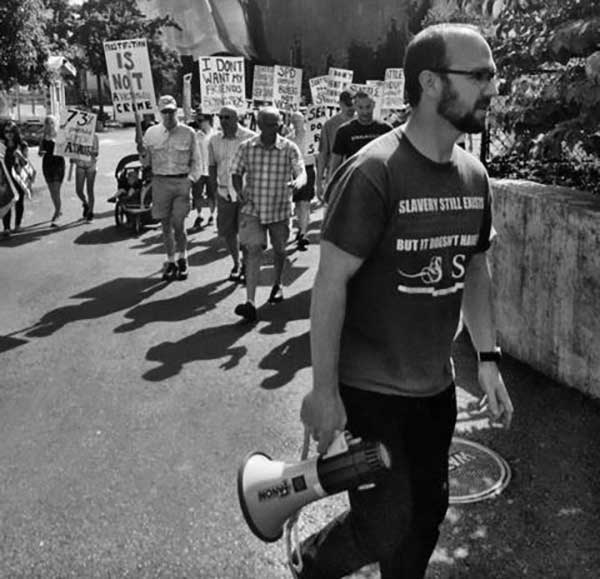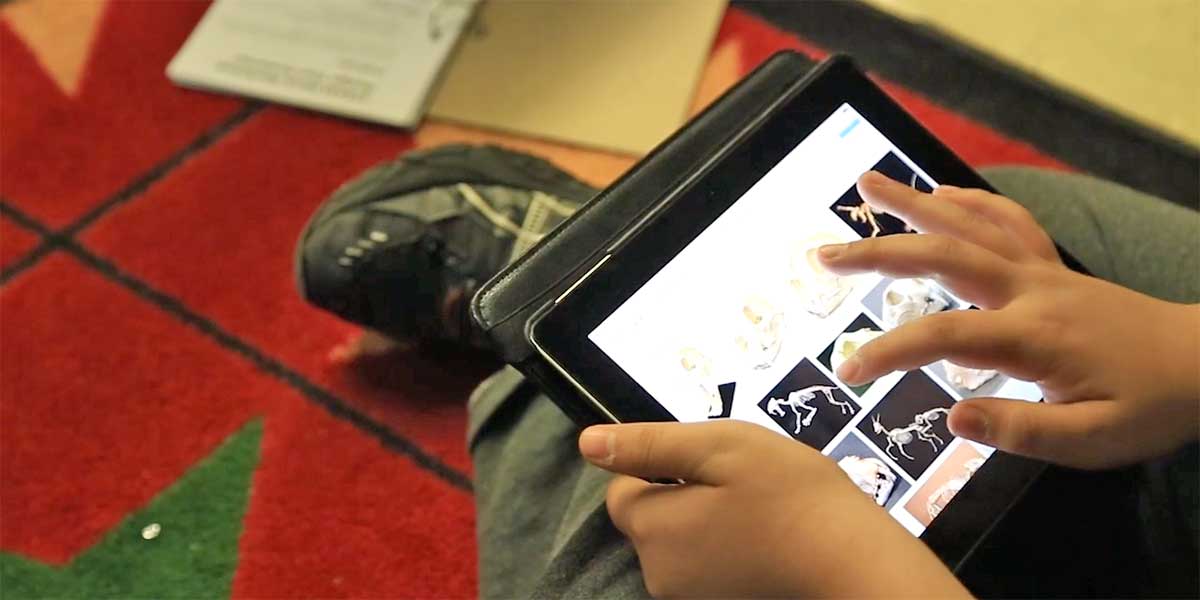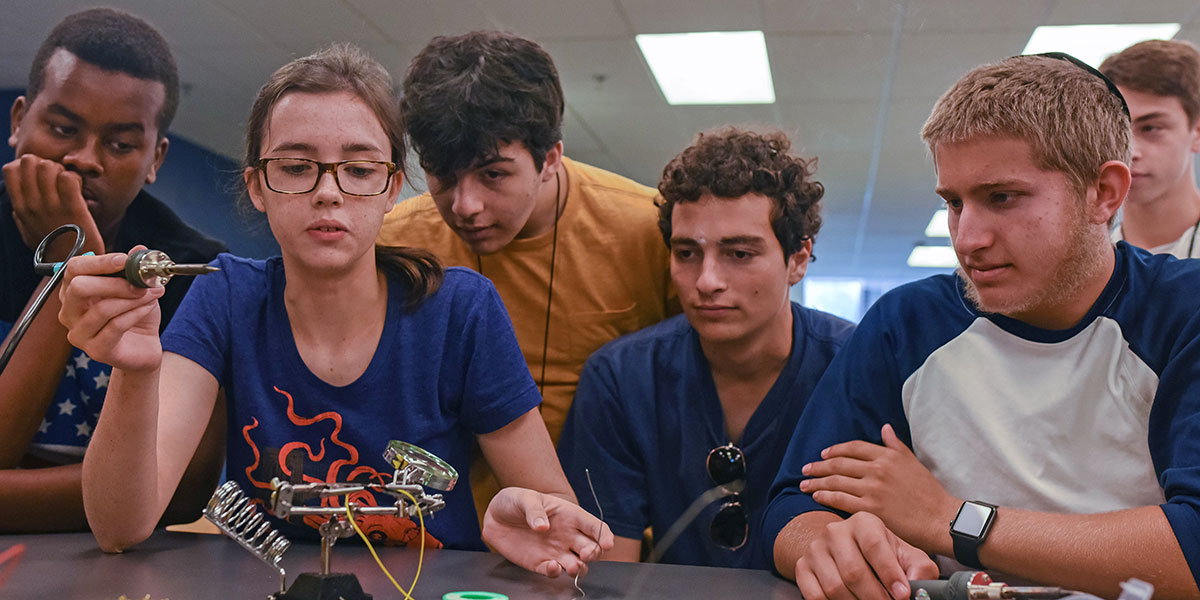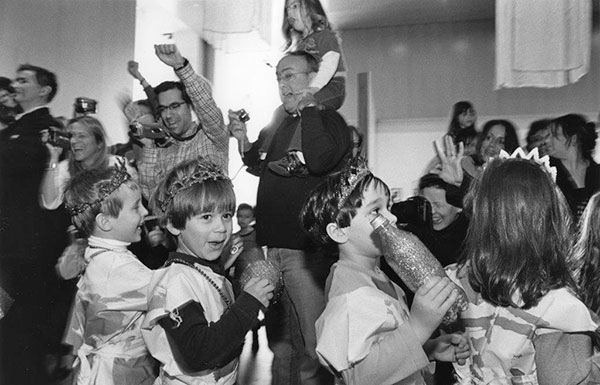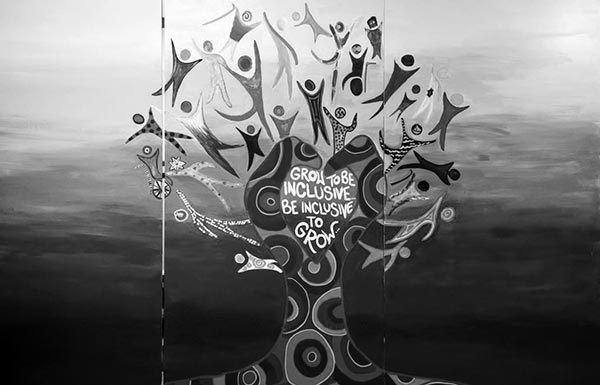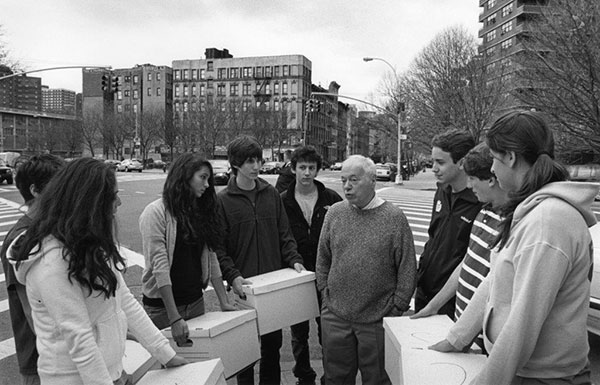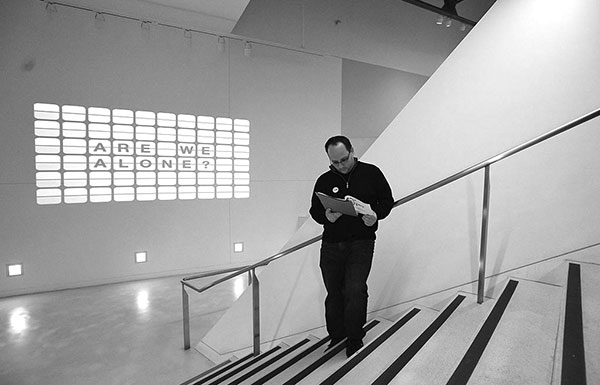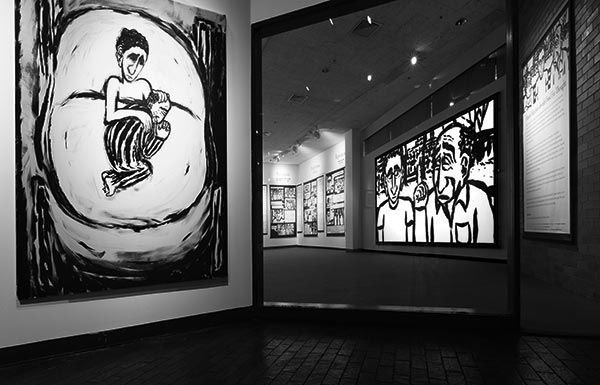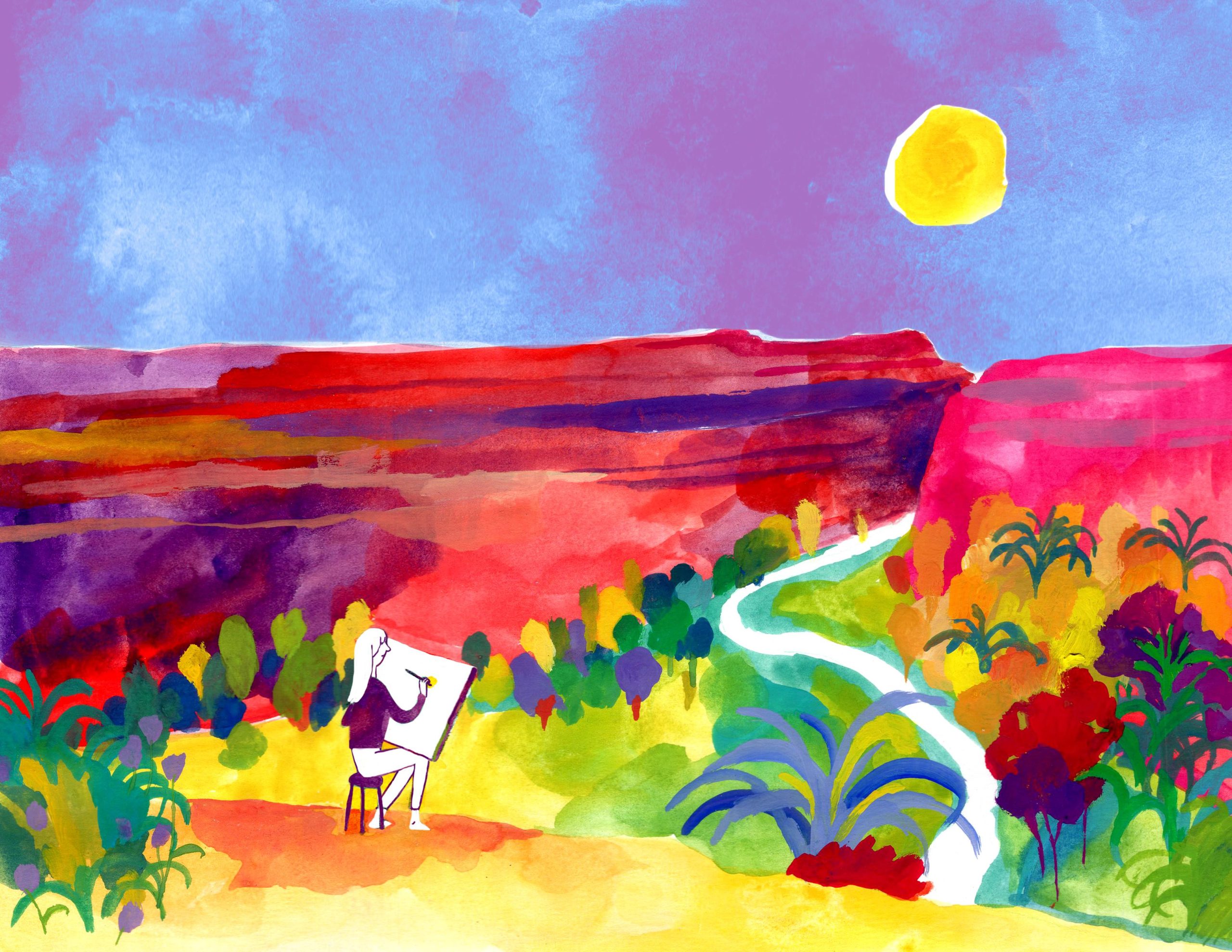
ARTICLE How the Unknown Can Spark Creativity
The “fear of the unknown” is a well-worn phrase, and rightfully so. Throughout life, we’re faced with myriad terrifying moments when we’re forced to reckon with an essential truth: we do not have control over everything. In fact, we ultimately have control over very little. For so many of us, this is scary. What’s more, as educators and caregivers, people are depending on us for answers, and not knowing becomes ever higher in stakes.
“The idea of not knowing something—about the future, about our own lives—is often associated with dread and fear,” said Rabbi Lisa Goldstein. As a rabbi, a teacher, and a certified master practitioner of NARM, a cutting-edge modality for working with developmental trauma, Goldstein understands deeply the extent of this kind of emotional discomfort.
“But the ability to sit with the unknown is a spiritual quality,” she said, “and it can be a place of creativity, exploration, and playfulness. In the well-being world [the world of health and wellness practices], developing great capacity to sit with the feeling of not knowing is associated with resilience, and with the possibility for healing.”
The Covenant Foundation first spoke with Rabbi Goldstein back in the fall of 2022, as we all emerged cautiously into the world after the pandemic. At that time, we spoke about trauma, healing, mindfulness, and breath.
And now, here we are a year later, yet the traumas of our collective lived experiences haven’t ceased—if anything, they’ve multiplied.
How does one keep moving forward, not knowing if things in our world will improve, or how, or when? And to which modalities might one turn next, as we search for healing?
Enter: art.
“In its own way, art can be a scary unknown, especially to people who aren’t comfortable with it,” Rabbi Goldstein said. In fact, she herself hadn’t used the medium in her trauma work until she collaborated recently with Rabbi Adina Allen, co-founder and creative director of The Jewish Studio Project, and a 2018 Pomegranate Prize recipient.
The two came together to teach a series of workshops to Jewish educators in the Covenant network after the Foundation approached them in search of opportunities to offer constituents that would promote healing and wellness.
In those curated workshops, both rabbis invited participants into a space where they could explore what it is like to not know. In a short period of time, not knowing went from being scary to being playful, exciting, open, and even joyful.
“The truth of life is that we don’t know, and that’s also the terror and beauty of being alive,” said Rabbi Allen, co-founder and creative director of Jewish Studio Project, and a 2018 Pomegranate Prize recipient.
Jewish Studio Project (JSP) is an organization based in Berkeley that uses art-making as a tool for Jewish learning, self-discovery, and social change. (JSP received a Covenant Signature grant in 2022.)
“Educators are often looked at as the ones who do know. You’re the one teaching, you’re helping people, you’re standing in front of students, but you yourself don’t have all the answers,” she said.
When describing the Jewish Studio Process methodology, Allen often cites the JSP mantra—'have you made art about it yet?’— as an invitation to unpack and explore ideas (and in fact, there is a series of JSP workshops with the eponymous title).
For their collaboration with educators, Rabbi Goldstein and Rabbi Allen decided to put a greater emphasis on questions rather than on answers. They began with an introductory exercise. Rabbi Allen put a variety of art materials on the table and gave participants one instruction: make something you’ve never made before. Could be a simple shape, could be a line drawing with a material you’ve never used. Then, pass it to the person next to you.
“We were learning as we went, we were reflecting as we went, we were holding a space wherein the educators in the room could feel free to experiment, rather than feel the need to justify their choices,” Goldstein said.
Developed initially as the Open Studio Process by Rabbi Allen’s mother, art therapist Pat B. Allen over 20 years ago, and used in settings as far flung as Taiwan and India, Allen added a beit midrash element and now uses the Process on a daily basis in the workshops she and her colleagues run online, every day. Through intellectual engagement and accessing a state of flow, in which “the thinking mind recedes, and one moves into somatic experience, and follows wherever the creative energy takes you,” participants are invited to access an experience not unlike meditation, where a quality of presence emerges that can be quite powerful.
Rabbi Goldstein and Rabbi Allen also used texts from many different sources—some biblical, some kabbalistic, and some contemporary—and asked their participants to interact with ideas: what they did and did not already know about the texts.
“In a spiritual context, if you are filled up with what you know, there’s no place to receive something new,” Rabbi Goldstein said. “As educators and caregivers, at some point, we know we have to make a decision about next steps, but even then, when we do decide, we don’t necessarily know what will come out of our decisions, and we need to practice sitting with that discomfort.”
We are all feeling deep discomfort right now; reeling during a time of crisis. To help their community stay in relationship to something so overwhelming, JSP has been offering a daily community space in the form of morning sessions, which Rabbi Allen describes as something akin to a daily minyan. They are half an hour long, and they begin with a blessing for creativity that Rabbi Allen wrote with the intention of making the work sacred. Next, she shares a short line or two of text, the group sets personal intentions, and then there’s 15 minutes of art-making, where each person lets the creative source move through them. After they’ve shared their art, there is a closing ritual and singing. Hundreds have signed up for the morning sessions thus far.
The educators who worked with Goldstein and Allen will continue to meet as well, and the two rabbis will continue to hone their practice of combining elements of the Jewish Studio Process along with techniques that Goldstein uses, like mindfulness, setting intentions and examining them, and using witnessing and inquiry as different tools with which to practice not knowing.
For their part, the educators who learned with Goldstein and Allen are eager to continue.
“Throughout the course of our time together, we had a participant who left their job, and another who lost a parent,” Allen said. “These are huge life transitions that lead to a lot of ‘not knowing.’” In fact, the participant who lost a parent reached out and asked Allen to lead a virtual shiva gathering wherein the attendees all engaged in the Jewish Studio Process and made art together.
“They all relaxed into and truly came to value that vulnerable space we created,” Allen said. “It’s a place where they don’t have to perform, they don’t have to be the expert, and they don’t have to have all the answers.”
By Adina Kay-Gross

